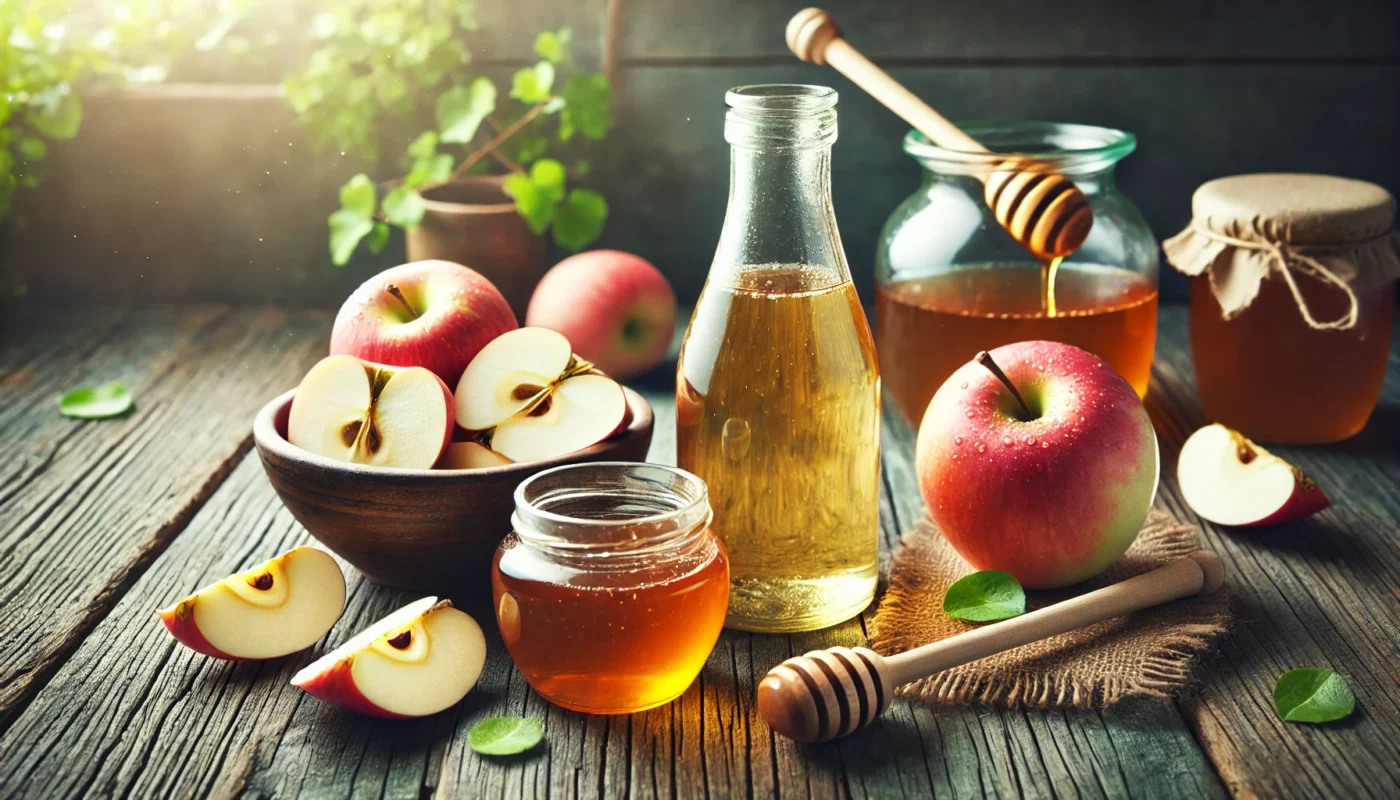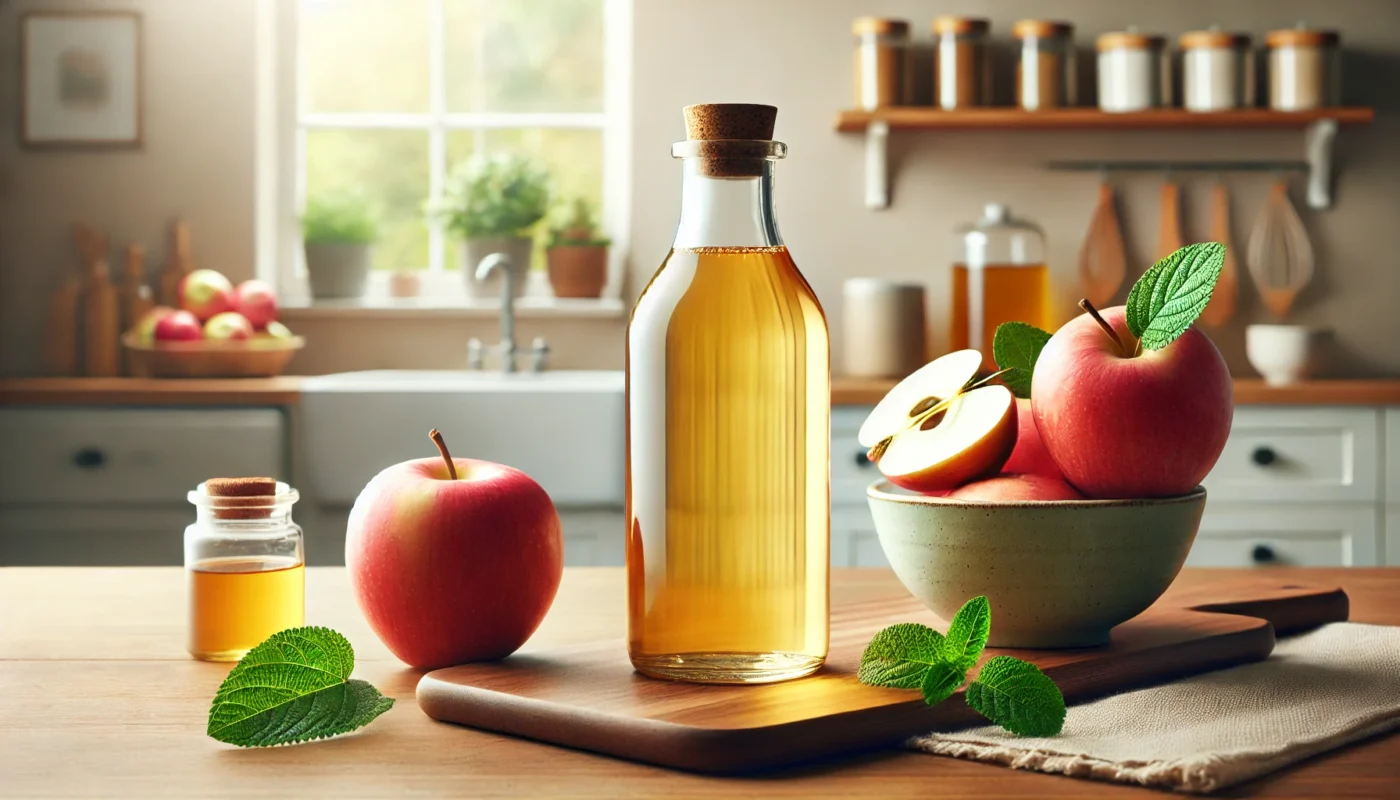Hypertension, commonly referred to as high blood pressure, is a widespread health concern affecting nearly half of adults worldwide. It significantly increases the risk of heart disease, stroke, and kidney failure, making its management a critical public health priority. Among the various natural remedies touted for hypertension, apple cider vinegar (ACV) has gained attention for its potential blood pressure-lowering properties. While ACV is widely known for its digestive and weight loss benefits, its role in managing hypertension remains a subject of interest and debate. This article offers a balanced analysis of the scientific evidence surrounding ACV and its potential impact on blood pressure control.
You May Also Like: Hypertension and Dairy: Friend or Foe?
Understanding Hypertension and Its Risk Factors
What Is Hypertension?
Hypertension is characterized by sustained high blood pressure, with readings exceeding 130/80 mmHg. It often develops without obvious symptoms but can lead to serious complications if left untreated.
Key Risk Factors for Hypertension
- Dietary Choices: High sodium intake, low potassium, and insufficient magnesium are common contributors.
- Lifestyle Factors: Sedentary behavior, obesity, and stress exacerbate the risk.
- Underlying Conditions: Diabetes, kidney disease, and hormonal imbalances can lead to secondary hypertension.
Given its multifactorial nature, managing hypertension often requires a combination of lifestyle modifications, dietary changes, and medical interventions.

What Is Apple Cider Vinegar?
Apple cider vinegar is a fermented liquid derived from crushed apples. It contains acetic acid, a compound believed to be responsible for many of its health benefits, as well as trace amounts of vitamins, minerals, and antioxidants.
Nutritional Components of Apple Cider Vinegar
- Acetic Acid: The primary active compound, accounting for 5–6% of apple cider vinegar.
- Potassium: An essential mineral for blood pressure regulation.
- Antioxidants: Polyphenols and flavonoids support vascular health.
- Probiotics: Found in unfiltered ACV with the “mother,” promoting gut health.
ACV is widely used for weight management, blood sugar control, and digestive health, but its role in hypertension management is less clearly defined.
The Science Behind Apple Cider Vinegar and Hypertension
Potential Mechanisms of Action
Several hypotheses suggest how apple cider vinegar might influence blood pressure:
- Improved Insulin Sensitivity:
- Insulin resistance is a common factor in hypertension. Acetic acid enhances insulin sensitivity, stabilizing blood sugar levels and reducing vascular strain.
- Evidence: A study in Diabetes Care (2004) demonstrated that vinegar improved postprandial glucose levels in insulin-resistant individuals.
- Vasodilation and Nitric Oxide Production:
- ACV may enhance nitric oxide availability, promoting blood vessel relaxation and improved blood flow.
- Reduction of Renin-Angiotensin System (RAS) Activity:
- The RAS regulates blood pressure by controlling fluid balance and vascular resistance. Some animal studies suggest that ACV reduces RAS activity, thereby lowering blood pressure.
- Antioxidant Properties:
- Polyphenols in ACV combat oxidative stress, a major contributor to endothelial dysfunction and hypertension.
Key Research Findings
While promising, the evidence supporting ACV’s effects on blood pressure remains limited, with much of the data derived from animal studies and small-scale human trials.
1. Animal Studies
- A study published in Bioscience, Biotechnology, and Biochemistry (2001) found that hypertensive rats fed acetic acid experienced reduced blood pressure. Researchers attributed this to improved calcium regulation and renin activity.
- Limitations: Animal studies may not fully translate to human physiology.
2. Human Studies
- A pilot study in Journal of Functional Foods (2018) reported modest reductions in systolic and diastolic blood pressure in participants consuming apple cider vinegar daily for eight weeks. However, the sample size was small, and the study lacked long-term follow-up.
- Another study in Complementary Therapies in Medicine (2019) highlighted ACV’s potential to reduce cholesterol levels, an indirect benefit for heart health.
3. Meta-Analyses and Reviews
- Comprehensive reviews emphasize the need for larger, controlled trials to validate ACV’s effects on hypertension. While mechanisms are plausible, robust evidence in humans is insufficient.

Practical Considerations for Using Apple Cider Vinegar
Dosage and Administration
For those interested in incorporating apple cider vinegar into their hypertension management plan, the following guidelines are commonly suggested:
- Dosage: 1–2 tablespoons (15–30 mL) diluted in water, consumed once or twice daily.
- Timing: Best taken before meals to aid in blood sugar control and digestion.
- Form: Opt for unfiltered, organic ACV with the “mother” for maximum benefits.
Potential Risks and Precautions
- Gastrointestinal Discomfort: Excessive apple cider vinegar consumption can cause nausea, stomach upset, or acid reflux.
- Tooth Enamel Erosion: Acetic acid may erode enamel; dilute ACV and use a straw to minimize contact with teeth.
- Medication Interactions: ACV may interact with diuretics, insulin, or potassium-lowering drugs, requiring medical consultation before use.
Complementary Strategies for Hypertension Management
While apple cider vinegar may offer supportive benefits, it should be part of a comprehensive approach to hypertension management. Key strategies include:
1. Adopt the DASH Diet
The DASH (Dietary Approaches to Stop Hypertension) diet emphasizes fruits, vegetables, whole grains, and low-fat dairy while reducing sodium and unhealthy fats.
- Evidence: The DASH diet has been shown to reduce systolic blood pressure by an average of 11 mmHg in individuals with hypertension.
2. Engage in Regular Physical Activity
Exercise improves cardiovascular health and complements dietary changes. The WHO recommends at least 150 minutes of moderate aerobic activity per week.
3. Reduce Sodium Intake
Excessive sodium raises blood pressure by increasing water retention. Aim for a daily sodium intake of less than 2,300 mg, or 1,500 mg for those with hypertension.

The Role of Nutritional Supplements in Hypertension Management
Supplements can complement apple cider vinegar and other lifestyle strategies by addressing nutrient deficiencies and supporting vascular health. Below are five evidence-based supplements for hypertension:
1. Hibiscus Extract
Hibiscus enhances nitric oxide production, promoting vascular relaxation. A study in The Journal of Nutrition (2010) showed that hibiscus tea reduced systolic blood pressure by 6 mmHg.
2. Magnesium Glycinate
Magnesium promotes blood vessel relaxation and supports electrolyte balance. A study in Magnesium Research (2016) found that magnesium supplementation reduced systolic blood pressure by 5 mmHg.
3. Omega-3 Fatty Acids
Omega-3s improve endothelial function and reduce inflammation, making them valuable for blood pressure control. A meta-analysis in Hypertension (2018) reported reductions of 4 mmHg in systolic blood pressure with omega-3 supplementation.
4. Beetroot Powder
Beetroot powder is rich in nitrates, which the body converts into nitric oxide to improve blood flow. Research in Nutrition Journal (2017) found that beetroot supplementation reduced systolic blood pressure by 4 mmHg.
5. Coenzyme Q10 (CoQ10)
CoQ10 is a potent antioxidant that improves mitochondrial function and reduces oxidative stress. A clinical trial in Hypertension Research (2007) demonstrated that CoQ10 lowered systolic blood pressure by 11 mmHg.

Conclusion: A Balanced Perspective on Apple Cider Vinegar and Hypertension
Apple cider vinegar holds promise as a natural remedy for hypertension, with mechanisms that include improving insulin sensitivity, promoting vasodilation, and reducing oxidative stress. However, current evidence is limited, with much of the data coming from animal studies and small human trials. While ACV can be part of a heart-healthy lifestyle, it should not replace evidence-based treatments or medical advice. Combining apple cider vinegar with a balanced diet, regular exercise, and appropriate supplementation provides a comprehensive approach to managing hypertension. As research continues, ACV’s potential role in blood pressure control may become clearer, offering new possibilities for natural health interventions.
References
- Diabetes Care. (2004). Vinegar improves postprandial glucose levels in insulin-resistant individuals. Diabetes Care. Retrieved from https://diabetesjournals.org
- Bioscience, Biotechnology, and Biochemistry. (2001). Effects of acetic acid on blood pressure in rats. Bioscience, Biotechnology, and Biochemistry. Retrieved from https://academic.oup.com
- Journal of Functional Foods. (2018). The effects of apple cider vinegar on blood pressure: A pilot study. Journal of Functional Foods. Retrieved from https://www.elsevier.com
- Hypertension Research. (2007). CoQ10 supplementation for blood pressure reduction. Hypertension Research. Retrieved from https://www.nature.com/hr
- The Journal of Nutrition. (2010). Hibiscus tea and vascular health. The Journal of Nutrition. Retrieved from https://academic.oup.com
Key TERMS for this article:
Hypertension, Apple Cider Vinegar, Blood Pressure Management, Acetic Acid, DASH Diet, Nitric Oxide, Insulin Sensitivity
Relevant and useful TAGS for this article:
Hypertension Remedies, Apple Cider Vinegar Benefits, Blood Pressure Control, Natural Health, DASH Diet, Nitric Oxide Boosters, Acetic Acid, Vascular Health, Heart Health Strategies, Hypertension Supplements
Important Note: The information contained in this article is for general informational purposes only, and should not be construed as health or medical advice, nor is it intended to diagnose, prevent, treat, or cure any disease or health condition. Before embarking on any diet, fitness regimen, or program of nutritional supplementation, it is advisable to consult your healthcare professional in order to determine its safety and probable efficacy in terms of your individual state of health.
Regarding Nutritional Supplements Or Other Non-Prescription Health Products: If any nutritional supplements or other non-prescription health products are mentioned in the foregoing article, any claims or statements made about them have not been evaluated by the U.S. Food and Drug Administration, and such nutritional supplements or other health products are not intended to diagnose, treat, cure, or prevent any disease.

